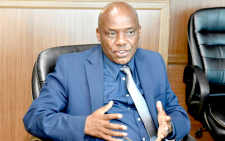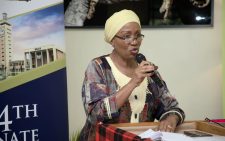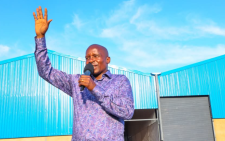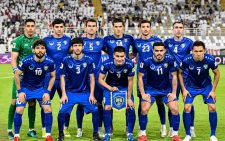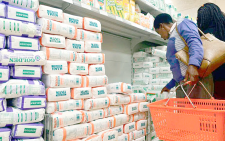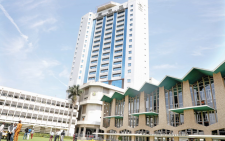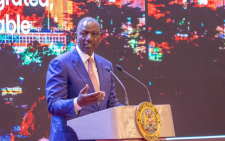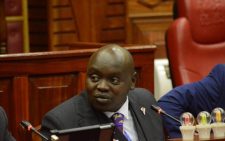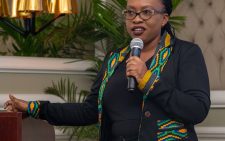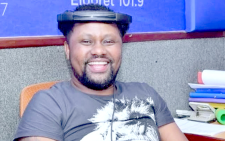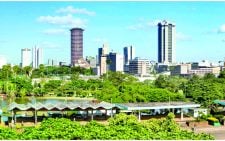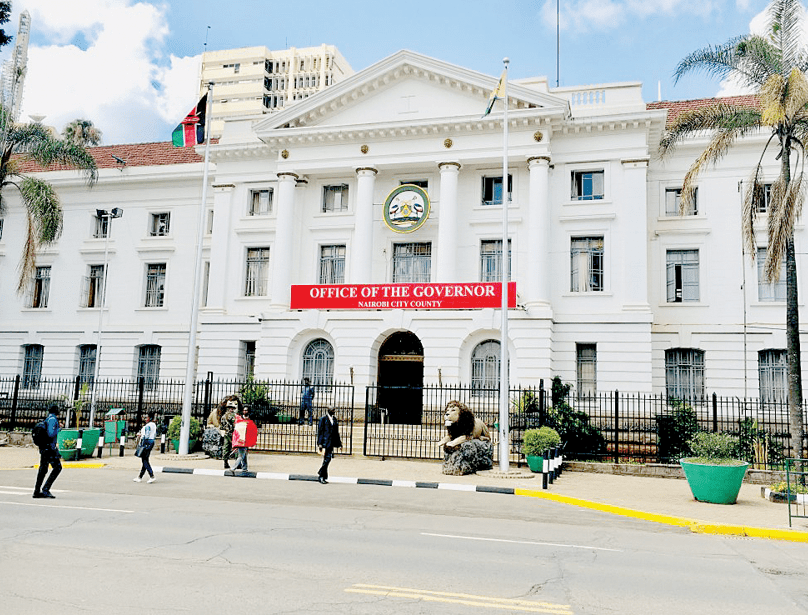Go well ‘Mukhulundu’ Malulu Injendi
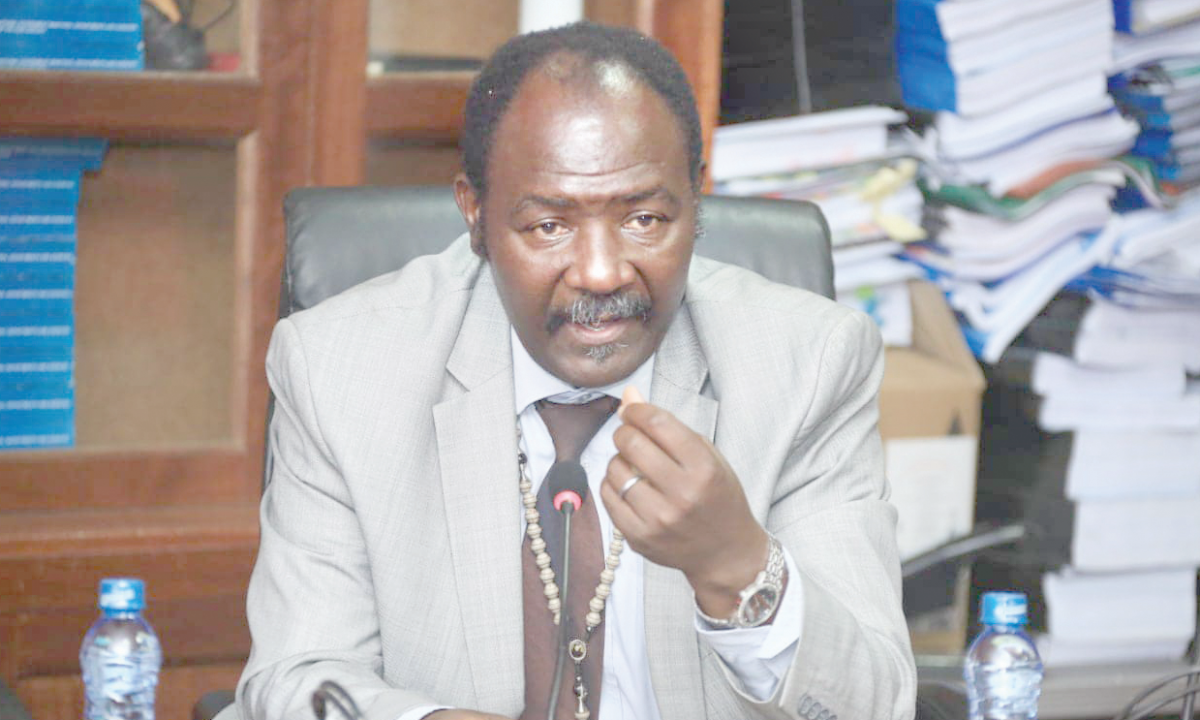
We were a pair that could have killed mangy dog. Or even eaten one. Together. At every encounter we had with a new person to anyone of us, Mukhulundu was wont to inform the newcomer of my background with him, especially as UT teachers at the sunset years of the tumultuous 1980s.
From our boyhood days, ‘Mukhulundu’ was the choice word of reference to a close friend by one us, Moses Malulu Injendi, who would later become our Member of Parliament.
In Kabras,, the word Mukhulundu simply means ‘elder’ or ‘older’. But in our context, the Malulu merely meant ‘friend’. So did we, his peers.
Malulu always went out of his way to inform a new company that he and I had started our salaried lives as untrained teachers way back in 1988 at Lugusi Secondary School which borders his family home Shitirila, Malava Constituency where we were paid Ksh 800/= per month, a remuneration that was so inconsistent and when it came, we would be paid a quarter of it after three months. The Sh200/= would for a day or two register wonders in our respective homesteads and Isanjiro market, better known to the outer world as Malava urban centre where bartenders would feel the weight of a UT.
In his introductions, Malulu would never forget – in addition to the low and scarce perks – to refer to the kind of interviews we were subjected to and the panel conducting them. First, the chairman of what was then known as the board of governors (nowadays BOM) was a raw illiterate who could neither read nor write his own name. He was unaware of the subjects taught at the school, leave alone pronouncing them. We were employed merely on the basis of our families’ standing in society and not because the BOG members had picked our intellect and competence.
Routine questions at the interview went thus: Do you have a girlfriend? Can you seduce your student? What can you do if your own female student smiled at you in class or at games time? Do you go to church every Sunday? Do you greet girls on your way to and from church? Can you greet your female student if you meet her on Isanjiro market? Do you smoke? Do you drink?
Passed interviews
We somewhat passed the interviews and got hand-written employment letters signed by our headmaster, James Andanje Tali (JAT as we called him), also a UT who was on the same salary scale like the rest of us.
Lugusi Secondary School, the school remains a memorable part of our lives as it acted as a launching pad for our future careers. In most cases, we had lunch at Malulu’s homestead where his widowed mother would prepare for us lunch that varied from black-tea and sweet potatoes to ugali and sour milk, if not local vegetables.
We remained proud later in life that we injected life in the school which today is a flourishing learning institution with all the trees we planted there still standing. I left Lugusi to join Tande Secondary School as a UT again before leaving in March 1989 to enter Kenya Institute of Mass Communication (KIMC) to train as a journalist. Malulu joined Egerton University via a rough stint at NYS. At Egerton, he studied sociology for three years together with my elder brother Juma Kwayera who did Linguistics, though both had been admitted to read economics. Malulu proceeded to take a Master’s degree and become a lecturer at the Catholic University of Eastern Africa (CUEA). He was a PhD student when he joined politics.
JAT had left earlier to join the Kenya Police. He retired last year as a Chief Inspector with the Directorate of Criminal Investigations. Dan Burudi Mwanga joined Western College (Weco) – known as Masinde Muliro University nowadays – to take accountancy. He too retired last year as a senior Judiciary official. Donald Lusamamba Sanya went to train as a primary school teacher and later as a theologian and is today a senior cleric within our Friends (Quakers) Church. John Mmbwanga also went to train as a primary school teacher.
Malulu was a resilient character. Though he was the son of a Chief, his father died when he was a toddler and his mother persevered a lot to make ends meet for the orphaned children. Right from Mang’uliro Primary School through Mukumu Boys’ High School to university, Malulu did not have it easy.
Job seeking
But he withstood the challenges. After Lugusi, he and I would later re-unite in Nairobi when I hosted him for seven weeks after he had completed his Master’s degree and was now job-seeking, or ‘tarmacking’ as we commonly call it in Malava. Shunned by friends and chastised by family, it was a very bumpy life for him. But he soldiered on relentlessly . And made it in life.
Since our Lugusi days, Malulu remained a constant part of my life. As I have been to him. We talked. Consulted. Socialised. Danced. Laughed. Danced. Together. Regularly. Malulu was full of humour. His company never disappointed.
Malulu approached me in 2011 to inform me that he wanted to run for the Malava parliamentary seat in the next elections two years ahead. He had no resources to stage that challenge. He also was not known to the political party honchos of the day to give him support. He wanted my support on those fronts.
That was a difficult request to me. So because another friend to both of us, the late Mark Shiyuka Luchivya, had approached me earlier with a similar ask. I informed him as much. Malulu, I and Mark were age-mates. We were all born in 1966. We grew up together and shared a lot together, including social night life, whether in Kabras or Kenya’s capital city.
In spite of my reservations, he asked me to do my best. I did. I got in touch with the Kubwa brothers (siblings of a respected gentleman in Malava called Christopher Kubwa, a friend of my elder brother Senda wa Kwayera, and who had worked in Nairobi at Posta when I was younger) to design ways of assisting Malulu meet his objectives.
Magomano Bar and Restaurant became our meeting point where I and the Kubwa brothers, who are also siblings of my colleague Carolyne Kubwa, mobilised Nairobi-based constituents of Malava for a weekly fund-raiser every Wednesday.
We raised money on Wednesdays to enable Malulu travel home on Fridays via Easy Coach bus to market himself to the grassroots. The highest amount we ever raised was Sh47,000/=
As elections neared, Malulu took back all his shares from a Malava-membered Sacco called Kefaso where he was the chairman, sold a plot he owned in Ongata Rongai and his residential house in Nkoroi in Kiserian to raise cash to add on what he had been saving from his sugarcane farming to pump it into his campaigns. It was at that juncture that he requested me to help him get political connections. I talked to a relative of his and senior Kabras politician Maxwell Shamalla of ODM to join me to take him to then National Planning Minister Wycliffe Oparanya who was angling for the Kakamega gubernatorial seat. Maxwell agreed on condition Malulu joins ODM first. Malulu declined. I took him to Oparanya alone.
The meeting with the Minister did not bear fruit. Oparanya wanted Malulu to be his running-mate in the county race. But Malulu preferred to be the MP for Malava. The move floundered. Unknown to both of us, Oparanya and Maxwell had already locked the MP space for another elderly friend of ours, Nambwa Musavini.
Unbowed, I and Malulu trooped to Musalia Mudavadi’s United Democratic Forum (UDF). There too, it did not work. That space had been reserved for Mudabadi’s crony, Saidi Khasavuli. A frustrated Malulu led his supporters to demonstrate through the streets of Malava town to protest the injustice in UDF and opted to join the hitherto unknown Maendeleo Development Party. Thus, Malulu entered the Malava parliamentary race as an underdog, just as did our friend Luchivya.
Malava had over the previous years been characterised by violence. That was worrying me a lot. I elected to convene a brainstorming meeting with the four main candidates to discuss that matter: Nambwa, Khasavuli, Malulu and Luchivya. On three different occasions, Nambwa and Khasavuli snubbed the meeting.
The two had a biting ego problem. Apart from being older than the three of us who were born in 1966, they were also considerably endowed financially and wanted to be treated as the front-runners. They actually were on face value. They separately passed their sentiments through their courtiers that they cannot be summoned to a meeting by their juniors in age.
To this date, I remain happy that Malulu and Luchivya swore in my presence not to promote or participate in electoral violence. They never did. Malava has not witnessed violence at election time since then. One hopes that trend prevails forever.
On election night, it was Nambwa who called at 4:45am to laughingly inform me thatMalulu was the next Malava MP.
During the life of the 11th Oarliament, Malulu was the only Member of Parl;iament in the National Assembly elected on the ticket of the Maendeleo Democratic Party.
The word Malulu means “the bitter ones” In Malava forest, there is a tree that bears bitter yellow fruits with milky juice called Malulu. Injendi’s election victory in 2013 no doubt left a bitter taste in the mouths of many a people. Malulu was serving his third term when he passed away on Monday evening.
Between 2021 and 2022, Malulu had a difficult political decision to make. Though he was a Member of the ANC party headed then by Mudavadi who had declared interest in the Presidency, on the hand, his friend and age-mate William Ruto, who was then the Deputy President, was too going to run for Presidency. Malulu was in a quandaray. He was torn between the two.
His happiest moment came on January 23, 2022 when Ruto’s UDA party and Mudavadi’s ANC came together at the Bomas of Kenya in what came to be known as The Earthquake to form the now ruling Kenya Kwanza Alliance with Ruto as the presidential candidate. It was a great relief for Malulu. He did not have divided loyalty and agonising moments again.
Physically, I last met Malulu in February last year. We had converged at the Sagret hotel for the inaugural Malava Professionals Forum meeting where National Assembly Speaker Moses Wetangula was the Chief Guest.
After that meeting, Malulu suggested we go and while away the evening at Vibro restaurant in Nairobi West. We did. With Pamela Benchi, Benard Mwonyonyo, Beverline Mmela, Lenah Imbogo, Amos Chilayj and Michael Ndombi, we indeed did while away the evening joyfully till late into the night.
In fact, Malulu’s bodyguard had to come and whisper to me to urge our friend to leave because it was getting rather too late and drink was getting the better of him. I did not meet Mukhulundu in person again since that day. Our other attempts to physically meet flopped.
Early last month Malulu called me one morning to inform me that he had arrived from Saudi Arabia and was feeling too cold and wanted to go and see a doctor first after which we could meet in the afternoon to discuss a certain matter.
The matter was that during the Christmas period, we had spoken on phone and my view was that an altercation he and some members of a constituency WhatsApp group was taking an unsavoury dimension and needed to be nipped in the bud. He concurred and we agreed that we should meet in the new year and hammer that concern out.
On that day in January this year, Malulu said he would call me once he left the hospital. He did not call as promised. He never called again. My friend remained in hospital until he breathed his last Monday.
Malava has lost a good leader. I have lost a good friend. A good man has died in Malava. We shall miss him. Fare Thee Well Mukhulundu. Rest in Peace. Till We Meet Again. With great regards.
The author is the Revise Editor with the People newspaper. E-mail: kwayeram@yahoo.co.uk
